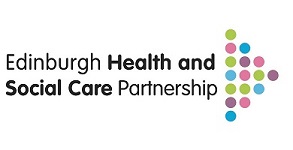Edinburgh Pact
Overview
The Edinburgh Pact
What is the Edinburgh Health and Social Care Partnership?
We’re responsible for delivering community and bed-based health and social care services for adults in Edinburgh.
The Partnership is made up of people employed by both the City of Edinburgh Council and NHS Lothian who work in health centres, GP Practices, community hospitals, care homes, nursing homes and communities across the city. Our staff provide care and support for people with mental health problems, long term physical conditions, as well as substance misuse problems. We also work with many charities, 3rd sector and independent organisations who provide a wide range of support.
For many people in Edinburgh, we have been a shoulder to lean on during hard times, enabled people to recover and get back on track or supported and cared for those most in need within our communities.
Even if you haven’t come across us, there is a good chance our diverse team may have helped your mum, dad, best friend or granny.
What is the Edinburgh Pact?
We want to build thriving communities in Edinburgh and embrace the opportunity to create a different relationship with residents, communities and organisations across the city.
We are starting a conversation to build the Edinburgh Pact. The Edinburgh Pact will be an agreement between the Partnership and everyone who lives and works in Edinburgh. Our first step is to listen and learn what health and social care means to you.
Why are we developing this now?
During the pandemic we have seen people and communities across Edinburgh rally together to support one another, helping and caring for people who might be struggling. We have also seen organisations and charities work together and produce solutions to support communities during this difficult time. We want to build on this.
We know that we face some real challenges for our health and social care system. The population is ageing, demand for services is increasing and our funding is not expected to grow at the same rate as the population. We need to think boldly about what can be different.
How will the Edinburgh Pact be developed?
The Edinburgh Pact will be developed by starting a conversation with everyone in Edinburgh, beginning with our survey.
We want to hear from everyone - our dedicated groups of volunteers, people using health and social care services, to people providing key services across the City and our committed Third Sector colleagues.
All your ideas, experiences and thoughts will help shape the Edinburgh Pact.
What are we asking you to do?
We need your help to develop the Edinburgh Pact.
Take a few minutes and let us know what health means to you.
Please make your voice heard.
Areas
- All Edinburgh
Audiences
- Amenity groups
- Architects/designers
- Built heritage groups
- Businesses
- Carers
- Children & Young People
- Civil and public servants
- Community councils
- Developers/investors
- Development management statutory consultees
- Development planning key agencies
- Education institutions
- Elected Members
- Employees
- External councils
- Homeless People
- Housing associations
- Jobseekers
- Landowners
- Lesbian, gay, bisexual people, Transgender people (LGBT)
- Libraries
- Licence applicants
- Licence holders
- Low income households
- Men
- Minority Ethnic groups
- Natural heritage/open space
- Neighbourhood partnerships
- Older people
- Parents/carers
- People with disabilities
- People with long term conditions
- Planning consultants
- Professional bodies
- Professionals
- Residents
- Road users
- Scottish Government departments
- Services/utilities
- Students
- Taxi Licence holders
- Teaching/Educational staff
- Transport groups
- Visitors
- Voluntary sector/volunteers
- Women
- Young people
Interests
- Adults and Older People
- Carers
- Children and Families
- Disabilities
- Health and Wellbeing
- Looked after and accommodated children
- Offenders
- Paying for Care
- People with addictions
- People with mental health issues
- Poverty and Inequality


Share
Share on Twitter Share on Facebook